At Nal’ibali, we promote literacy through research, campaigns, programmes, and special projects. Each initiative helps spark a love of reading and empowers communities across South Africa.
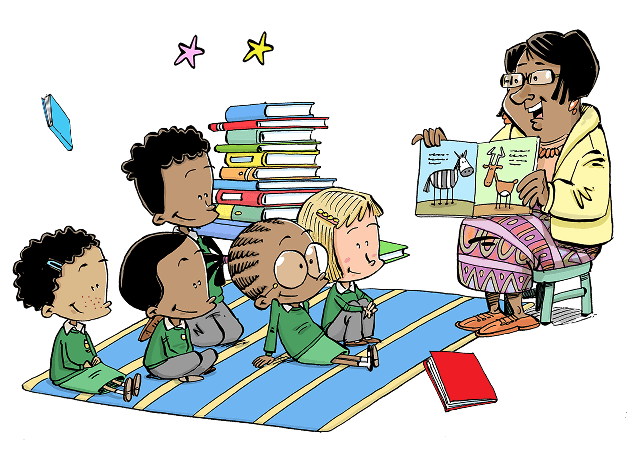
Storybook reading and storytelling benefit children both cognitively and emotionally. Cognitively, story book reading, and storytelling make a critical contribution to developing literacy through building vocabulary and reading for meaning (Hart & Risley, 2003). A robust vocabulary improves all areas of communication — listening, speaking, reading and writing.
Children in low-income families, with uneducated parents, in a home with more than 25 books, are more likely to gain two more years of schooling than children in homes with no books. (Evans, Kelly, Sikora & Treiman, 2010). Such homes are equipped with books, and adults willing to demonstrate the value of written text, reading to children regularly, listening to, telling and making up stories. A literary cultured home doesn’t need adults to be literate.
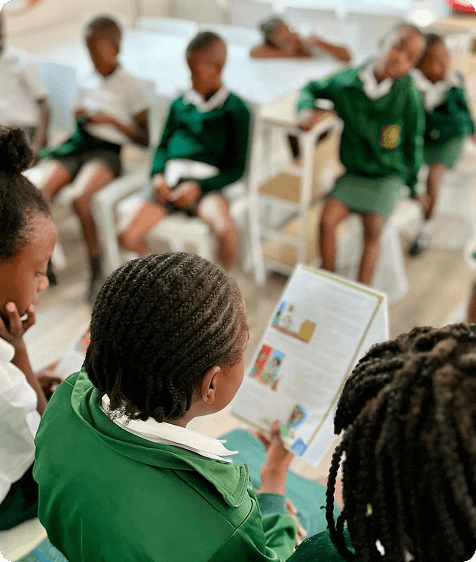
Emotionally, storybook reading and storytelling in a safe, familial environment promotes family cohesion and intimacy, boosting children’s self-esteem and contributing to them becoming confident students (Hoyne & Egan, 2019). Deep discussion of the texts and expressing emotional reactions to the turns of the story, develops children’s empathy and ability to self-regulate (Aram & Shapira, 2012). Story books expose children to social situations, introducing moral dilemmas, relationships, conflicts and problem solving through characters (Fine, Aram & Ziv, 2011). Social-emotional skills at an early age predict positive adult outcomes include good mental health, low chance of substance abuse and higher chance of employment. (Mahasneh, Raomanowki & Dajani, 2017).
To change behaviour around reading, the benefits must be understood and valued. Nal’ibali’s programme work caters for various settings and audiences, applying specific interventions with different outcomes. Implemented face-to-face or online, there’s a programme to suit your needs.
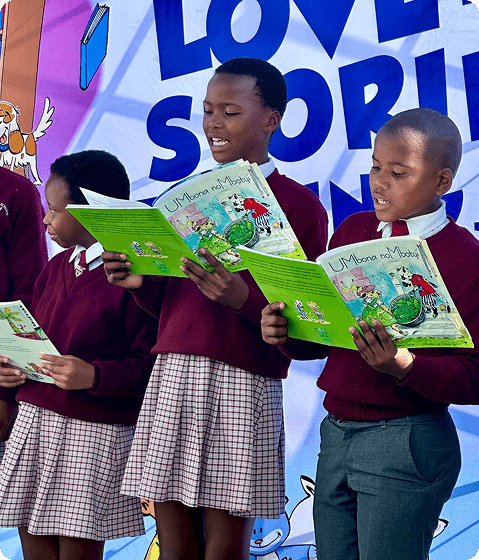
This is where Nal’ibali’s work on the ground comes to life, bringing the love of stories to children all over the country.
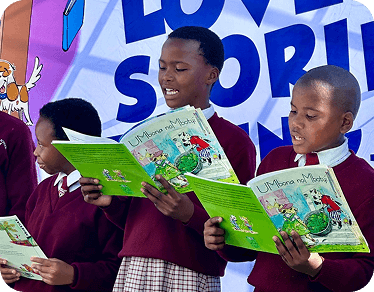
We celebrate World Read Aloud Day every year by writing a special story in all 12 SA language…
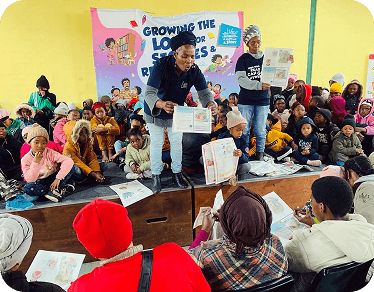
Literacy day and heritage month is celebrated in September and each year, Nal’ibali is celebrates the rich diversity of culture…
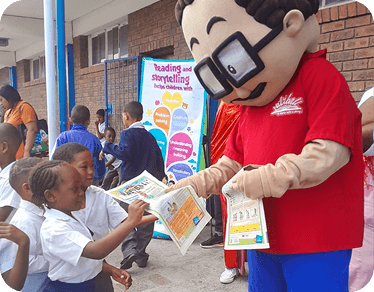
Nal’ibali uses Book Day to highlight the importance of access to literacy materials in the mother tongue, and to distribute books across South Africa.
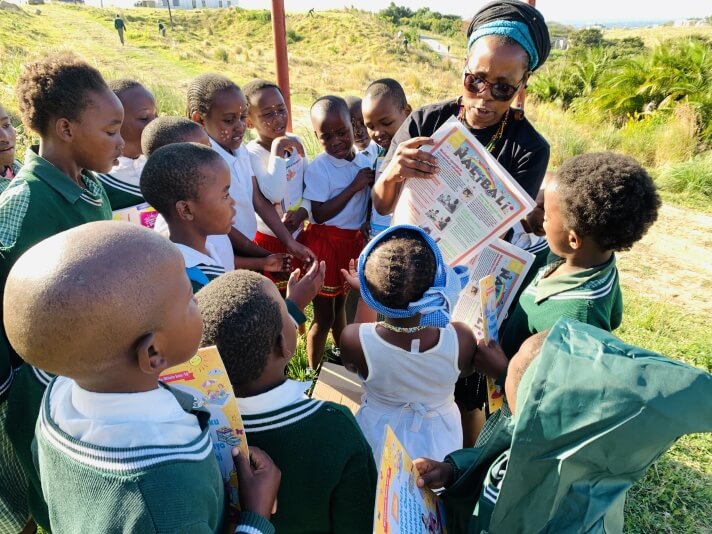
During Mandela Month, Nal’ibali hosts reading-aloud sessions, and play-based learning activities…
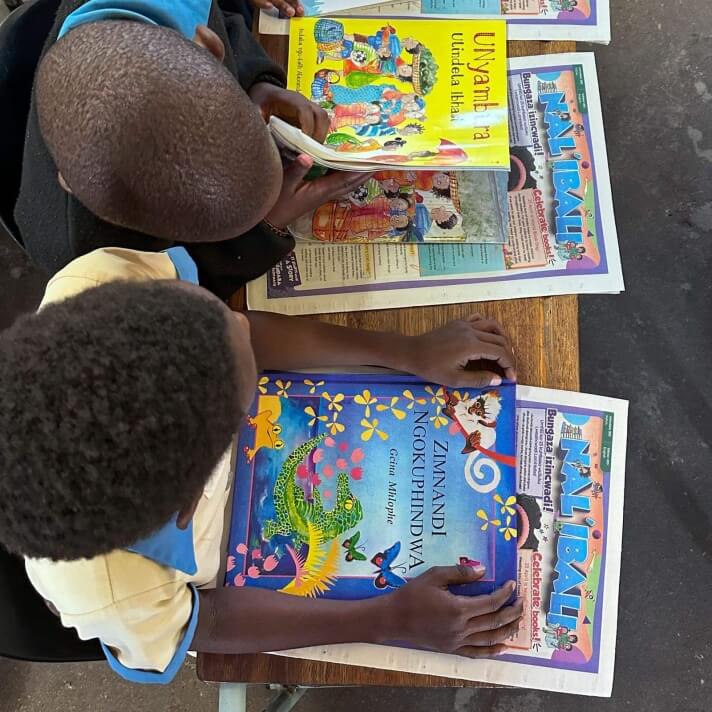
Nal’ibali sees D.E.A.R as an opportunity to foster a culture of reading for enjoyment at schools, home, preschool, and in communities.
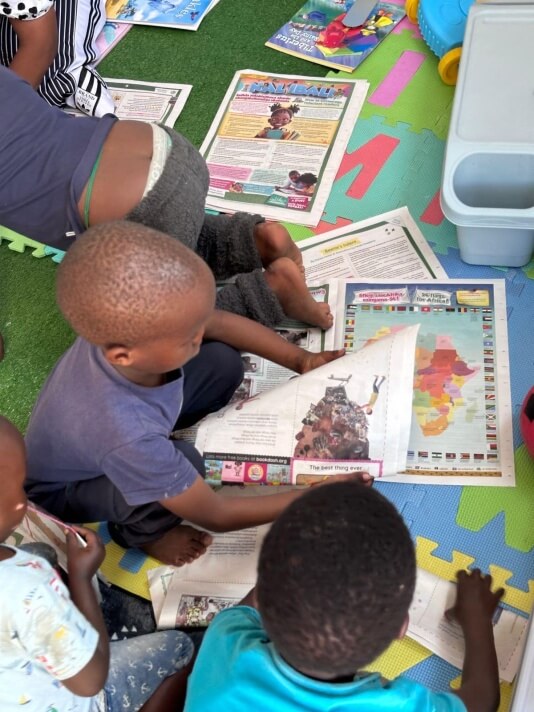
June is Nal’ibali Newspaper Supplement Month. During the month, Nal’ibali celebrates the impact that the Nal’ibali Reading…
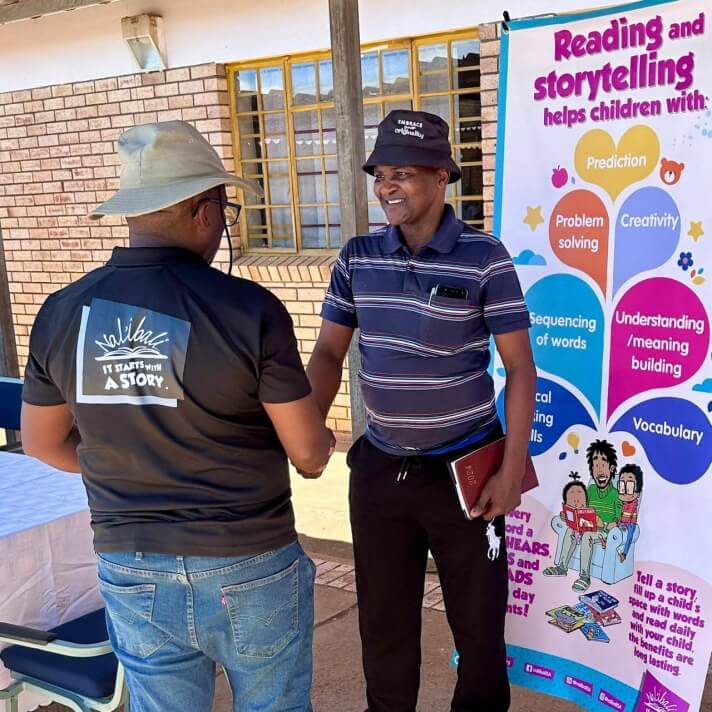
The Nal’ibali Men’s Literacy Imbizo aims to upskill men in the literacy space and create a network of men who are interested in building a culture of reading for enjoyment in their communities.
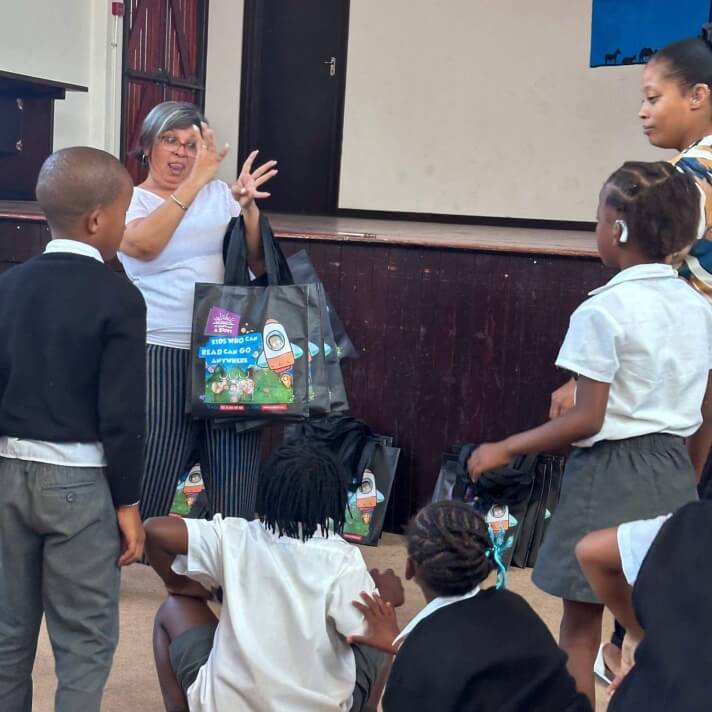
Nal’ibali uses Mother Language Day to raise awareness about the importance of all 12 South African languages in literacy development
The National Reading Survey was commissioned and managed by the Nal’ibali Trust in partnership with the National Library of South Africa, with support from the Zenex Foundation, DGMT and the National Education Collaboration Trust. The National Reading Barometer maps the health of the South African reading ecosystem, using National Reading Survey findings and published
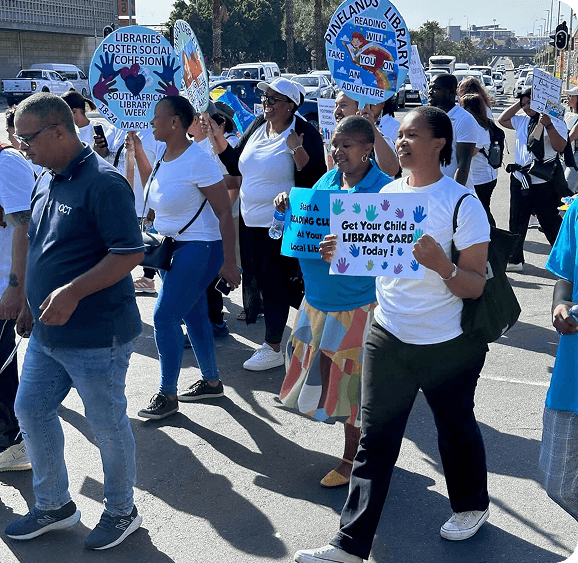
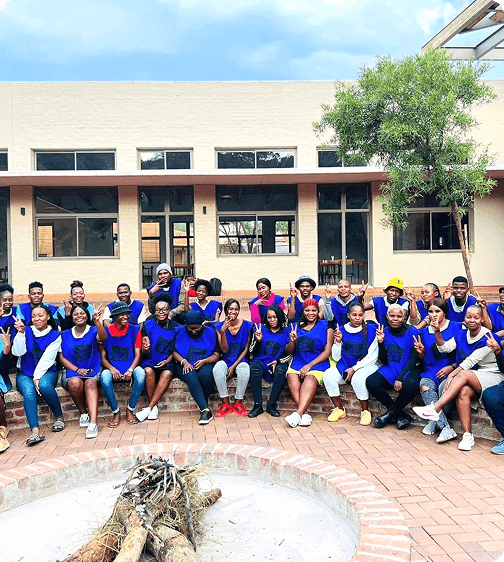
The Nal’ibali SEF (Social Employment Fund) Project provides meaningful, community-based work opportunities that promote literacy development across South Africa. Through this initiative, we empower literacy champions to support reading, storytelling, and learning in homes, schools, and community spaces — helping to build a stronger culture of reading while creating lasting social impact.
What could possibly happen when a starving cow is left alone with three fluffy little chicks? And what would happen when the cow comes home and finds a big pile of hay? What if she ate and ate and ate …
